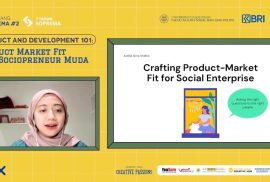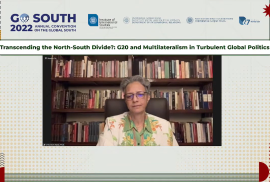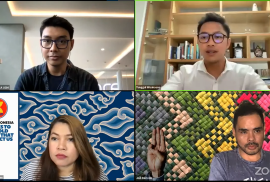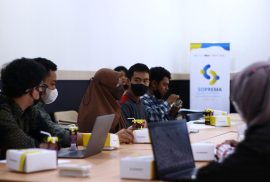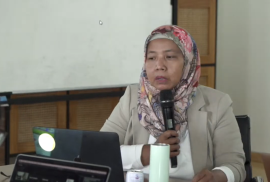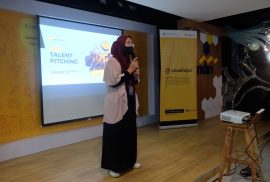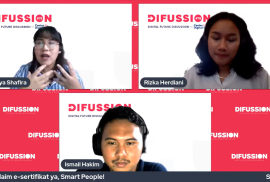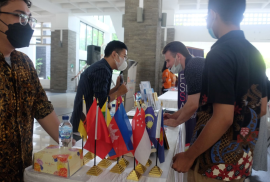Yogyakarta, September 17th 2022–As a part of the SOPREMA 7-Year Event, Youth Studies Center (Yousure) FISIPOL UGM is back with the second SOPREMA Talk titled “Product and Development 101: Product Market Fit for Young Sociopreneur” on Saturday (17/9). In this session, Yousure invited Azellia Alma Shafira or Selly, the CEO of Banoo Inovasi Indonesia, as the speaker.
In the business world, the term Product Market Fit (PMF) is used to know whether products that are developed fit the target market aimed for. Therefore, market research is needed. This can be done by involving potential consumers in perfecting the product so it fits their needs.

